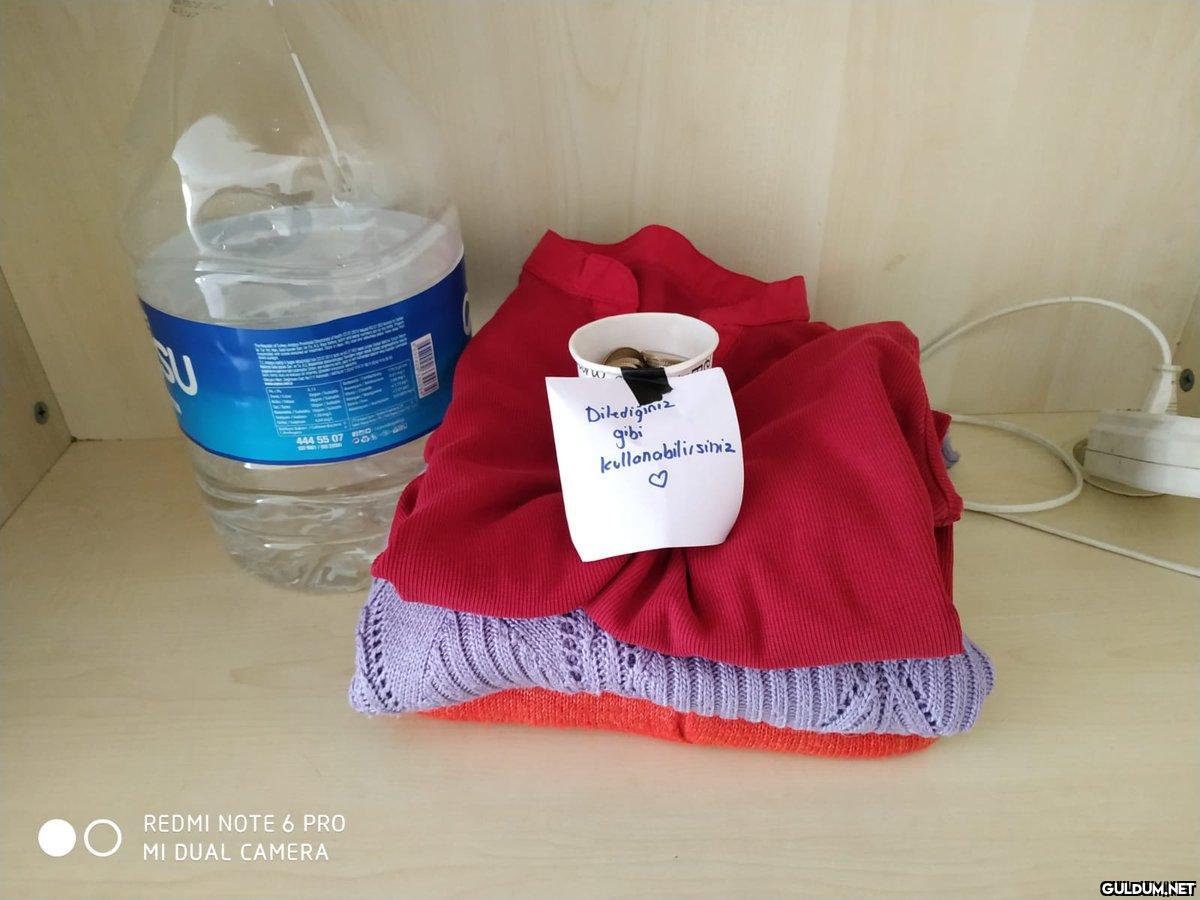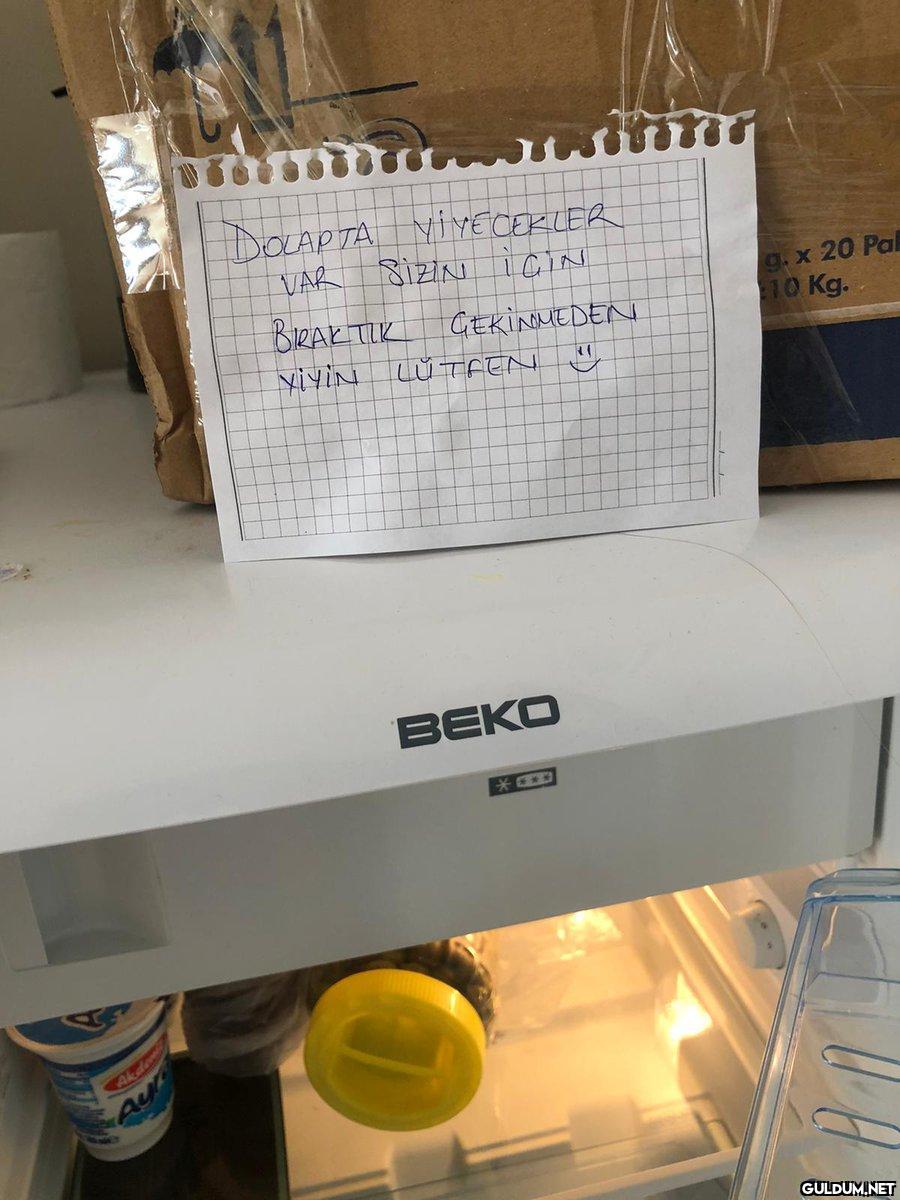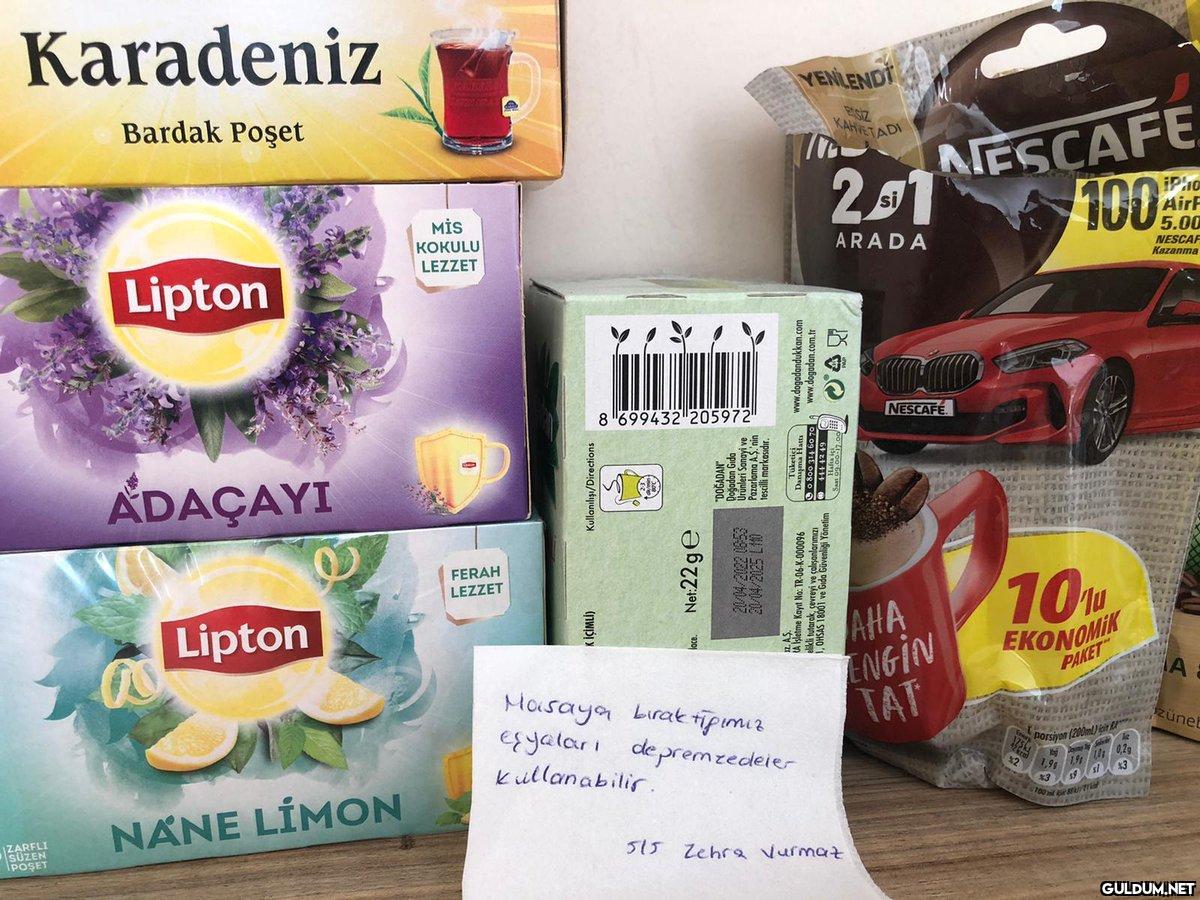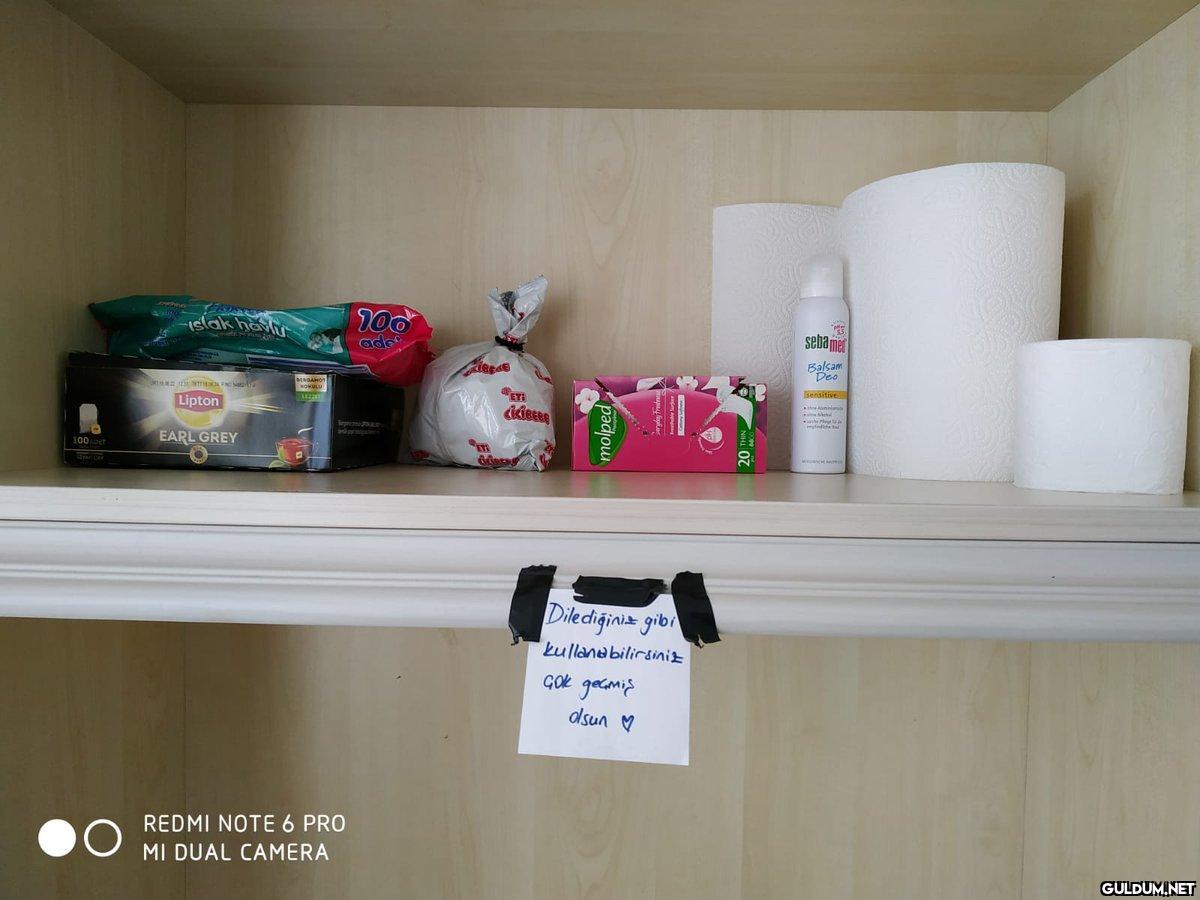Öğrencilerin depremzedeler için yazdıkları… https://t.co/2xfdDeo4xu
P 444 55 07 w REDMI NOTE 6 PRO MI DUAL CAMERA w Dilediğiniz gibi kullanabilirsiniz Ayr DOLAPTA YİYECEKLER VAR SIZIN IGIN BRAKTIK GEKİNMEDEN YİYİN LÜTFEN ☺ BEKO g. x 20 Pal 10 Kg. Karadeniz Bardak Poşet ZARFLI SÜZEN POSET Lipton ADAÇAYI Lipton NANE LIMON MİS KOKULU LEZZET FERAH LEZZET Kullanılışı/Directions 8 699432 205972 Net:22ge ก Jrünleri Sanayi ve YENLENDI Danama Hatt www.dogadandukkan.com www.dogadan.com.tr 40 04 09 415 oog o Masaya bıraktığımız eşyaları depremzedeler kullanabilir. 444 42 49 Esiz KAHETADI A Isletme Kayıt No: TR-06-K-000096 1, OHSAS 18001 ve Gıda Güvenliği Yönetim 201 si ARADA NESCAFE 100 iPho AirF 5.00 AHA ENGIN TAT 515 Zehra Vurmat NESCAFE 101 EKONOMIK PAKET Porsiyon (200ml) 3568 100m NESCAF Kazanma zünet 100 DET Islak havlu ETAPAS Lipton EARL GREY BERGAMOT HOULD LEZI Spo REDMI NOTE 6 PRO MI DUAL CAMERA 100 ade lese ETI CICIBERE molped Dilediğiniz gibi kullanabilirsiniz ço
The photo shows a large bottle of water, a stack of clothes (red, purple, and orange), a small paper note, and a disposable coffee cup on a light beige wooden surface. The note has handwritten Turkish text. The joke, in Turkish, is likely a play on words using the phrase "Dilediğiniz gibi kullanabilirsiniz" which translates to "you can use it as you like". In this context, the clothes are being presented as a potential alternative to something that might have been expected to come in the bottle (water). It is a humorous suggestion that the clothes could be used *in place of* the water or something else, perhaps as a joke gift. It's a somewhat silly and lighthearted expression of creativity or resourcefulness, particularly relating to the clothes being "reusable".
The photo shows a note inside a refrigerator, written in Turkish. The note says: "Food in the refrigerator, for you. Please eat what we've left." The humor lies in the somewhat passive-aggressive nature of the message. It implies that the food has been left in the fridge, possibly forgotten or not wanted. The "Lütfen yiying" (please eat) part is the punchline. It's a gentle reminder to the person(s) the note is for to consume any food left behind.
The photo shows several packages of tea (Lipton, Karadeniz, Adaçayı) and a bag of Nescafé coffee. There's also a handwritten note. The joke, in Turkish, is implied by the context. The note says: "Masaya bıraktığımız eşyaları depremzedeler kullanabilir." This translates to: "The items we left on the table can be used by earthquake victims." The humor comes from the juxtaposition of the tea and coffee packages, commonly consumed items, with the implication of donating them to earthquake victims. It's a sarcastic or lighthearted commentary on the abundance of goods, perhaps implying that these common items are being offered as help to those displaced by the earthquake, while also highlighting the fact that there might be more important things needed than tea or coffee in a disaster. The implication is that offering such things is a somewhat less impactful gesture of help than one might think in such a situation.
The photo shows a shelf in a cupboard filled with various household items. There's a box of Earl Grey tea, wet wipes, a pack of sanitary napkins, a deodorant spray, and rolls of toilet paper. Attached to the shelf is a small piece of paper with a note written in Turkish. The joke, in Turkish, is likely a play on words. The note says: "Dilediğiniz gibi kullanabilirsiniz. Çok geçmiş olsun." This translates to: "You can use it as you like. Good luck/Good health." The humor lies in the context. The items on the shelf include wet wipes, sanitary napkins, and toilet paper. The phrase "as you like" suggests a broader application beyond its typical use; leading to a humorous implication of potentially using them in an unexpected or even inappropriate way. The "good luck/good health" part seems out of place in that context, adding to the unexpected nature of the joke. In short, it's a pun based on the ambiguity of the phrase "as you like" in the context of the items available.




Bu paketin içinde her şey var, eksik olan tek şey umut 😓
Şu paketin içindeki Lipton Adaçayı'yla depremzedelerin moralini düzeltmeye çalışıyorlar herhalde 🤣
Depremzedelerin evlerine geri dönme umutları, bu yardım paketiyle aynı anda yok oldu 💔
Bu yardım paketiyle depremzedeler sadece evlerini değil, hafızalarını da yenileyecekler 😂